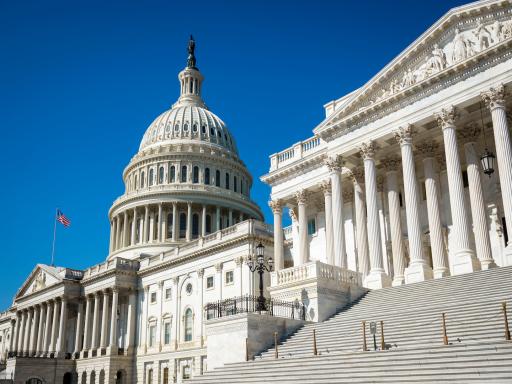U.S. Senator Gary Peters and the Homeland Security and Governmental Affairs Committee convened a hearing last week that examined the 2020 Census in Michigan and its impact on local communities.
As CMF reported, the results of the 2020 Census showed undercounts for people of color, specifically the Black population, the American Indian or Alaska Native population living on a reservation, the Hispanic or Latinx population and people who reported being of “some other race.”
Based on the 2020 census, Michigan's congressional and state legislative districts were redrawn. Although results of the population count show that Michigan's population rose to over 10 million people, it was slower growth than other parts of the nation, resulting in the state losing a congressional representative.
Kelley Kuhn, president and CEO of the Michigan Nonprofit Association (MNA) was invited to testify about the 2020 Census and to share more about the work nonprofits led to support Census outreach and education through the Michigan Nonprofits Complete Count Campaign (NPCCC).
“The undercount has led to inequality in political power, government funding and private-sector investment for these communities; thus, the NPCCC was developed, leveraging nonprofits as trusted outreach partners, with a specific goal to reach these undercounted groups,” Kuhn said.
The NPCCC was launched in 2017 with support from the W.K. Kellogg Foundation. The campaign was supported by more than 40 CMF members and the Michigan Legislature.
More than 11 CMF member community foundations served or partnered as regional hubs through the NPCCC in their region, working with organizations on the ground to increase awareness and education around Census participation.
Kuhn shared that the campaign raised more than $10 million and engaged hundreds of nonprofits in a nonpartisan, multi-racial coalition with for-profit organizations and government. The campaign’s intentional focus on diversity, equity and inclusion in grantmaking resulted in all grants being awarded to organizations serving historically undercounted populations.
“Thanks in part to nonprofits’ hard work, Michigan finished eighth in the U.S. in self-response rate. On June 17, 2020, we became the first state in the nation, to have exceeded its 2010 self-response rate. We also ranked third best in the nation for the largest gain in statewide response from the 2010 census, rising from 67.7% to 71.3%,” Kuhn said.
Maha Freij, CEO of the Arab Community Center for Economic and Social Services (ACCESS) and CMF trustee, spoke at the hearing. Freij shared more about the difficulties of not having a “Middle Eastern or North African” (MENA) response category on the 2020 Census, forcing MENA individuals to identify as “White” or use the write-in option.
"The federal government’s exclusion of a category of self-identification for people from the MENA region, including Arabs and Chaldeans, has significant consequences," said Freij, "Especially given that the Census produces powerful data that helps legislators, policymakers and community-based organizations recognize and address critical issues, like health disparities, academic and professional achievement gaps, and lack of access to capital."
Several advocacy efforts, including those led by ACCESS, have been launched to help distinguish the community on federal forms. In February, Peters championed legislation that would specifically identify MENA communities as underserved, establishing a precedent for the inclusion of this community in federal relief.
Peters shared that the testimony from the hearing would put the local perspective on the record and help the Census Bureau address these challenges.
“Every 10 years, the census serves as a roadmap to ensure Michiganders and our communities receive important federal funding for education, health care, infrastructure projects, and more,” Peters said. “From a pandemic to political interference and undercounts, the 2020 Census faced unprecedented challenges that could impact Michigan communities like Detroit for years.”
Peters hopes the hearing leads to steps the Census Bureau can take to ensure all Michigan residents are supported and counted in the future.
Want more?
Read more about the 2020 Census results.
Learn more about the hearing.
